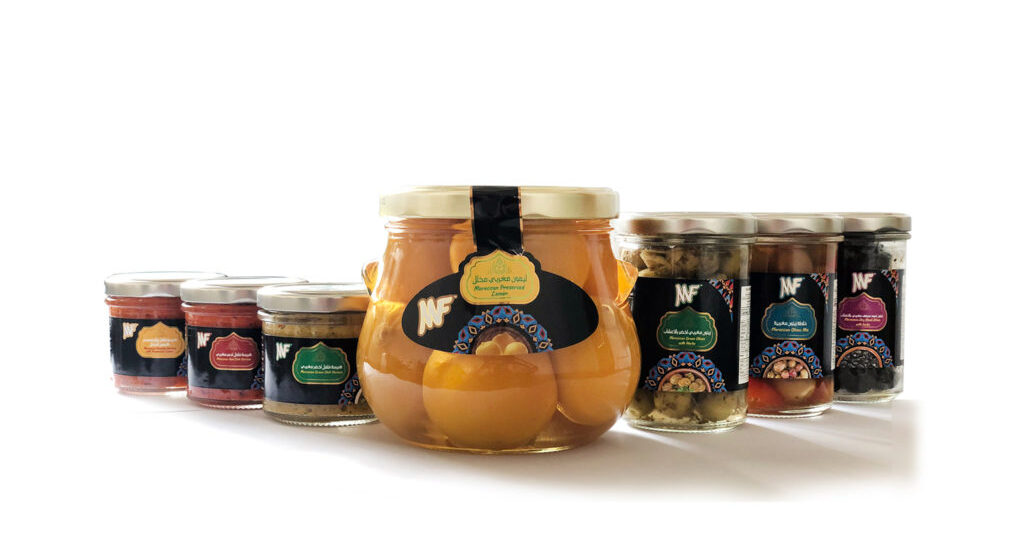- July 17, 2023
- Posted by: MF-FOOD
- Category: Moroccon cuisines

Moroccan olive tree cultivation has grown at an unprecedented level in recent years. The country began to plant olive trees with the goal of increasing olive oil production as a part of the “Green Morocco Plan.”
According to the Moroccan Ministry of Agriculture, there has been a 70% increase in oil production in 25 years. Now, Moroccan Olives Manufacturers have made Morocco the 5th largest producer and exporter of olive oil by producing 160,000 tons of olive oil with 1 million hectares of olive tree plantation.
What makes Morocco the best olive oil-producing country?
Morocco is a country with a vast diversity of geography and culture. The country is going through a significant shift, recognizing its rich history and modernizing important areas of its economy. This includes its robust agriculture industry, which today employs over 40% of the labor force, and so ranks as the countries’s largest employer.
Olive farming and oil production are important components of the agricultural industry. Morocco is currently the fifth-largest producer of olive oil in the world and has been growing olives since the Roman era. Moroccan Olive Oil has a unique flavor and offers a number of health advantages. You will get all the health advantages of olive oil, as well as some unique flavors when you pick Moroccan olive oil.
The Influence of Moroccan Climate and Geography on Olive Manufacturing
The Atlas Mountains is a mountain range in northwest Africa that covers Morocco, the region around Marrakech, Algeria, and Tunisia. The mountain divides the Atlantic and Mediterranean coasts from the Sahara Desert, and it is the place where the majority of the country’s olive production is located.
Unique flavors are created with its diverse region. An ideal climate for the best quality olive trees is one with mild winters and warm, dry summers. The trees are able to flourish in areas with clay and gritty sands, particularly at the base of the high Atlas Mountains.
Award-winning Moroccan olive oil manufacturing
Both the quantity and quality of Moroccan olive oil output have grown. The NYIOOC World Olive Oil Competition presented three awards to Morocco in 2020.
Moroccan oils are assessed based on complexity, fruitiness, pungency, bitterness, harmony, and persistence. Moroccan Olives Manufacturers appears to be finally receiving recognition globally by winning multiple international awards.
How to buy authentic Moroccan olive oil?
If you are looking for a certain brand, it can be challenging to get genuine Moroccan olive oil. It is not necessary to sample real olive oil before buying it because it tastes bitter and resembles picual olives. As sunlight can speed up the rancid process, it should also be stored in a dark glass bottle and in a dimly lit area.
After comparing the color of olive oil, it is simple to distinguish between authentic and unauthentic olive oil, as the latter has a clear or greenish-yellow color. Always verify the bottle’s expiration date to guarantee freshness and quality. With its superior quality and long-lasting health advantages, Moroccan olive oil costs a little bit more.
Moroccan olive oil is a premium product that enjoys international recognition for its flavor and various health benefits. The health advantages of Moroccan olive oil include antioxidants, vitamin E, and a significant amount of oleic acid. Many Moroccan Sauce Manufacturing Company use Moroccan olive oil to make use of these health benefits.
Morocco offers a variety of olive oils.
Understanding the kinds of olives that are used to make the various varieties of olive oil in Morocco can help you know them better. The following are some of the most popular types of Moroccan olives used to create olive oil:
- Arbi: This is a black, Manzanilla-type olive oil.
- Dafina: Dafina is little, black olives that can either be grown on a farm or picked up from a tree in the wild.
- Lakhdar: These are miniature black olives.
- Makhzen: These green olives are either picked from cultivated trees or wild trees.
- Mejdoul: These are medium-sized black olives.
- Yaourti: These are dark green olives either grown on farms or picked up from untamed trees.
- Joun: This is a black olive of this medium size.
- Bouzoug: This is a dark-brown wild olive
- Ghali: These are little, dark green olives that are either grown on farms or plucked from trees that are grown naturally.
- Klef: The green olives of this kind are large in size
- Manzanilla: These are huge, bitter-tasting green olives.
- Med: These green olives are small in size and have a strong bitter flavor.
Important Benefits of Moroccan Oil
Controls body weight
Due to the widespread belief that consuming too much fat will increase weight gain and obesity, many people avoid using oils like olive oil. The average person should consume extra virgin olive oil in their diet as it includes good fatty acids, according to specialists.
Fat doesn’t always result in significant weight gain. Olive oil use has not been linked to weight gain, according to research. Health standards advise people to get 20% to 35% of their calories from fat, primarily from Polyunsaturated fatty acids (PUFA) and Monounsaturated fatty acids (MUFA), for a healthy and balanced diet.
These good fats can be found in some oils, seeds, nuts, and plant sources, so many Moroccan Sauce Manufacturing Company make use of olive oil. Moroccan olive oil is a good source of MUFA, so including it in your diet can help you meet the recommended daily intake of fats and keep your weight in check.
Mental health advantages
You will be amazed to learn that olive oil from Morocco has advantages for both physical and mental health. A number of recent studies have found that certain foods, like olive oil, have elements that help to improve mood and reduce depressive symptoms.
A 2013 study found that components in virgin olive oil can be highly helpful in treating anxiety and depression. A 2017 study also found that 30% of individuals were able to overcome their depression by following a Mediterranean diet and taking at least two tablespoons of extra Moroccan olive oil daily.
Final thoughts
Tasting Moroccan cuisine while traveling there is one of the best ways to discover the country’s culture. What is the better way to do that than by tasting some of the olive oil made foods in Morocco? Olive oil is a staple of the Moroccan diet and is usually used in Moroccan Sauce Manufacturing Company. Find a fresh, high-quality bottle of Moroccan olive oil to begin serving its delights on your table at home.
